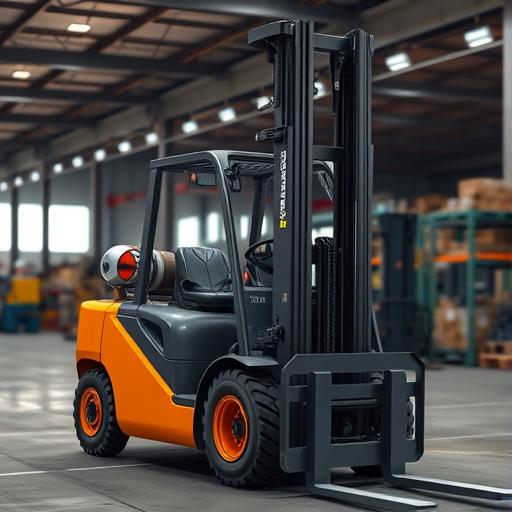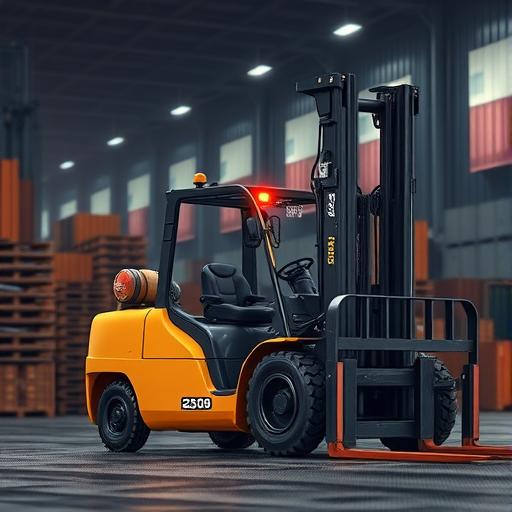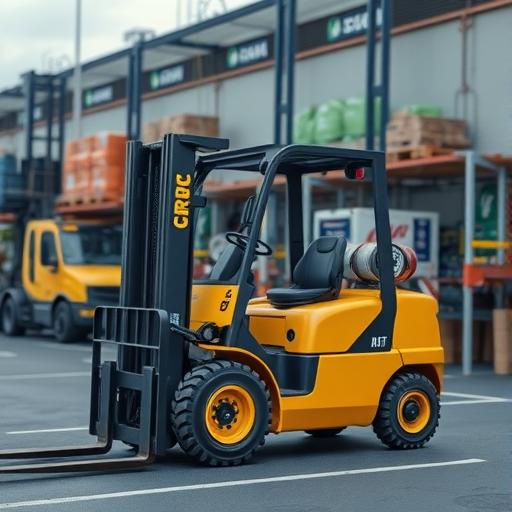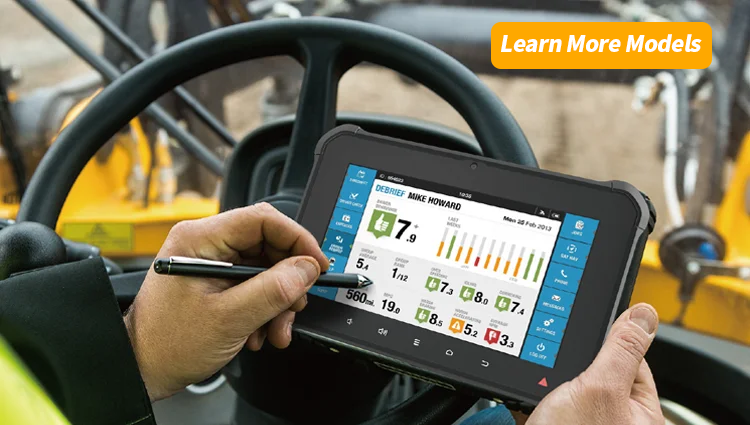Forklift Fleet Management Solutions: Boosting Efficiency and Reducing Costs
Effective forklift fleet management plays a crucial role in improving operational efficiency, reducing maintenance costs, and enhancing safety in any logistics, warehouse, or industrial environment. As businesses scale and the demands on material handling increase, managing a forklift fleet with precision becomes not just a necessity but a competitive advantage.
What is Forklift Fleet Management?
Forklift fleet management refers to the strategic oversight and optimization of all the forklifts in a company’s operations. This includes monitoring usage patterns, maintenance schedules, fuel consumption, and operator performance. By leveraging fleet management technologies, businesses can track their forklifts in real time, predict maintenance needs, and ensure operators are following safety protocols.

Key components of forklift fleet management:
- Telematics Systems: These systems offer real-time data on forklift usage, downtime, and operator behavior, providing insights that can reduce wear and tear on vehicles.
- Automated Maintenance Alerts: Scheduling regular maintenance is vital to ensuring longevity. Automated alerts ensure that no routine check is missed.
- Fuel or Battery Monitoring: Keeping track of energy usage allows managers to optimize fueling or charging schedules, cutting unnecessary costs.
- Asset Utilization Reports: These reports help assess how efficiently the forklifts are being used, identifying underutilized or overused assets.
The Benefits of Implementing a Forklift Fleet Management Solution
A well-implemented forklift fleet management solution provides a plethora of benefits, transforming the efficiency of your operations. Here are the key advantages:

1. Reduced Operational Costs
One of the primary goals of any fleet management system is to reduce the operational expenses associated with running a fleet of forklifts. From fuel consumption to maintenance, forklift fleet management systems help reduce excessive costs through optimization.
One of the primary goals of any fleet management system is to reduce the operational expenses associated with running a fleet of forklifts. From fuel consumption to maintenance, forklift fleet management systems help reduce excessive costs through optimization.
- Fuel Efficiency: Monitoring fuel consumption helps in reducing fuel wastage. Additionally, many modern fleet management systems can identify inefficient routes or idling habits that result in high fuel usage.
- Maintenance Costs: Routine maintenance is often more cost-effective than unexpected repairs. With automated alerts, forklift managers can conduct preventive maintenance that extends the lifespan of the machines.
2. Improved Safety and Compliance
Accidents and non-compliance can lead to significant financial penalties, operational disruptions, and, more importantly, harm to employees. Forklift fleet management systems are equipped with tools to monitor operator behavior, ensuring adherence to safety protocols.
- Operator Training: Telematics can track poor operator behavior, such as speeding or improper loading, allowing managers to implement targeted training programs to rectify these issues.
- Compliance Tracking: Systems can maintain an automated log of safety checks and certifications, ensuring the fleet always meets legal requirements and industry regulations.
3. Enhanced Productivity and Efficiency
Efficient forklift fleet management reduces downtime and ensures that each vehicle is being used to its fullest potential. With real-time insights, managers can proactively address any bottlenecks.
- Optimized Forklift Utilization: Asset utilization reports highlight which forklifts are underused or overused, allowing managers to redistribute workloads for optimal performance.
- Reduced Downtime: By staying on top of maintenance schedules and identifying potential issues before they result in breakdowns, fleet managers can drastically reduce downtime.
4. Data-Driven Decision Making
Forklift fleet management systems provide a wealth of data that can be used to make informed decisions. Whether it’s deciding when to replace aging equipment or determining the most fuel-efficient routes, data is key to running a smarter operation.
- Performance Analytics: By reviewing operator and equipment performance metrics, fleet managers can make decisions that improve overall operational efficiency.
- Predictive Maintenance: With advanced analytics, fleet managers can predict when a machine will require maintenance based on usage trends and machine health data.

Key Features to Look for in a Forklift Fleet Management System
Choosing the right forklift fleet management system is critical to reaping all the benefits outlined above. Not all systems are created equal, so it’s important to look for specific features that will enhance your operations.
1. Real-Time Tracking and Telematics
Real-time tracking ensures that fleet managers know exactly where each forklift is at any given moment, which is crucial for maintaining efficiency and safety. Telematics systems can track everything from forklift location to engine hours, giving a full picture of forklift usage patterns.
2. Maintenance Management Tools
Automated maintenance schedules and alerts ensure forklifts are always in optimal condition. Look for a system that can provide detailed maintenance logs and proactive alerts.
3. Fuel/Battery Monitoring
Whether your fleet runs on fuel or electricity, monitoring energy consumption is critical. A good fleet management system will provide real-time insights into energy usage, helping reduce unnecessary fuel consumption or optimize charging cycles for electric forklifts.
4. Operator Monitoring and Training Modules
Your forklift operators are just as important as the machines they use. A fleet management system should include tools that monitor operator performance and provide feedback for improvement. This could include tracking excessive speed, harsh braking, or improper loading techniques.
5. Integration Capabilities
A forklift fleet management system should be able to integrate with your company’s existing logistics and warehouse management systems, providing a holistic view of operations. Integration ensures that data flows seamlessly between systems, reducing manual entry and errors.

Implementing Forklift Fleet Management Solutions in Different Industries
Different industries have unique challenges when it comes to forklift fleet management. Here’s how various sectors can benefit:
1. Warehousing and Logistics
In warehouse environments, forklifts are often used around the clock, making efficient fleet management essential. A good fleet management system ensures that vehicles are always available when needed and that downtime is minimized.
2. Manufacturing
In manufacturing, forklifts are responsible for moving materials between different production stages. Effective fleet management ensures that materials are transported quickly and efficiently, keeping production lines running smoothly.
3. Retail
Retail distribution centers rely on forklifts to move large quantities of goods. Fleet management helps optimize the use of forklifts, reducing costs and ensuring timely deliveries to stores.
How to Choose the Right Forklift Fleet Management System
When choosing a forklift fleet management system, it’s essential to assess the specific needs of your operations. Some key considerations include:
- Fleet Size: Larger fleets may require more advanced systems with robust reporting and analytics capabilities.
- Budget: While some systems may offer more features, it’s important to choose a solution that fits your budget without sacrificing critical functionalities.
- Integration Needs: Ensure that the system you choose can easily integrate with your existing software solutions for a seamless workflow.
Forklift fleet management solutions are essential for any business that relies heavily on material handling. Whether you’re managing a small fleet or hundreds of forklifts, these systems provide the tools you need to improve efficiency, reduce costs, and enhance safety.








